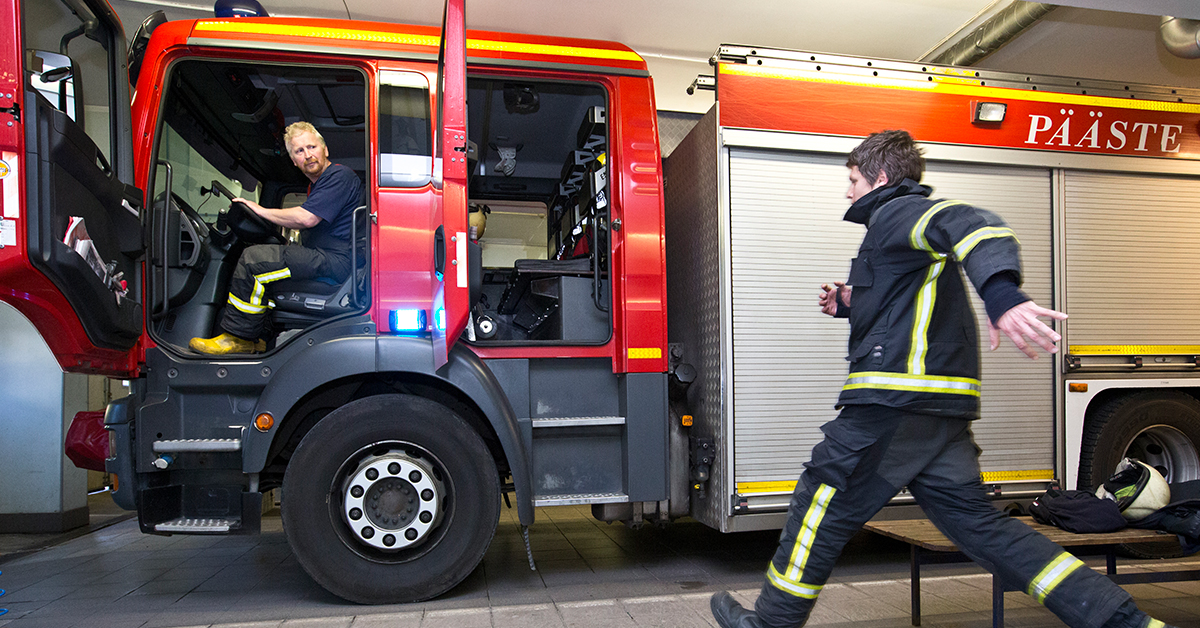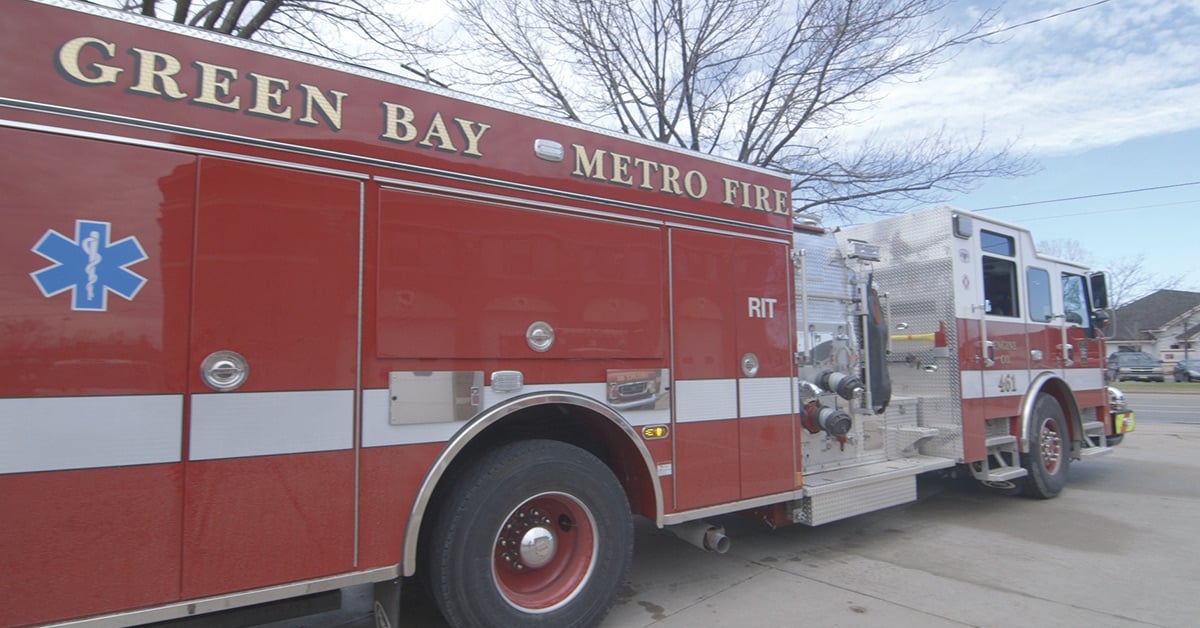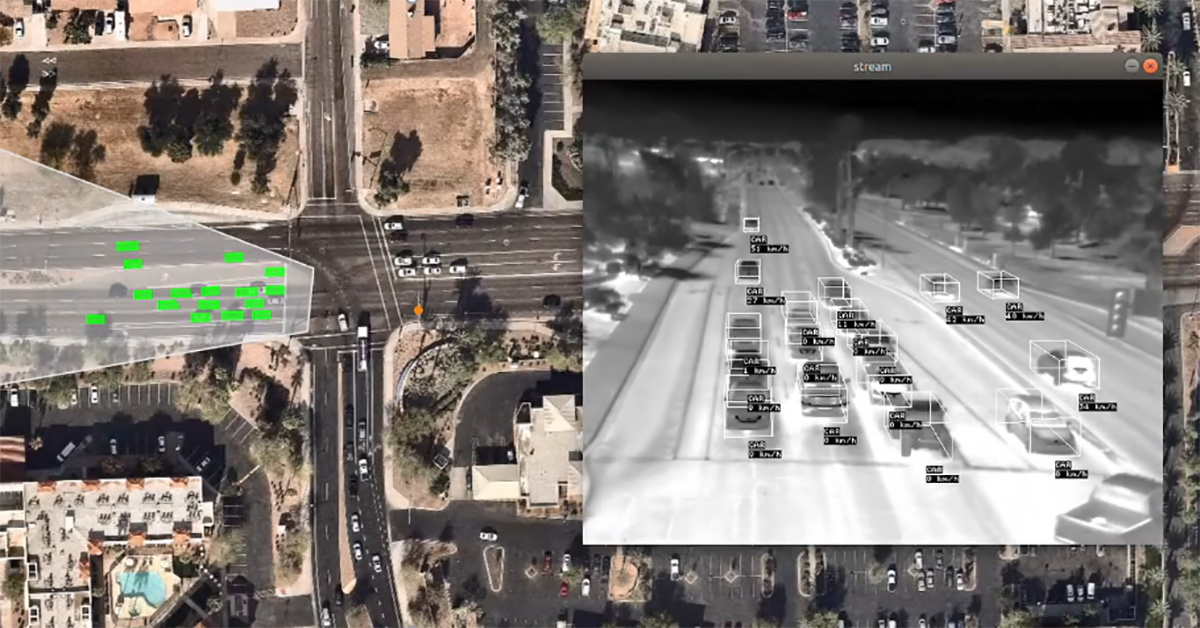Thermal Imaging Helps Kalmthout Fire Department During Wildlife Fires and Other Interventions
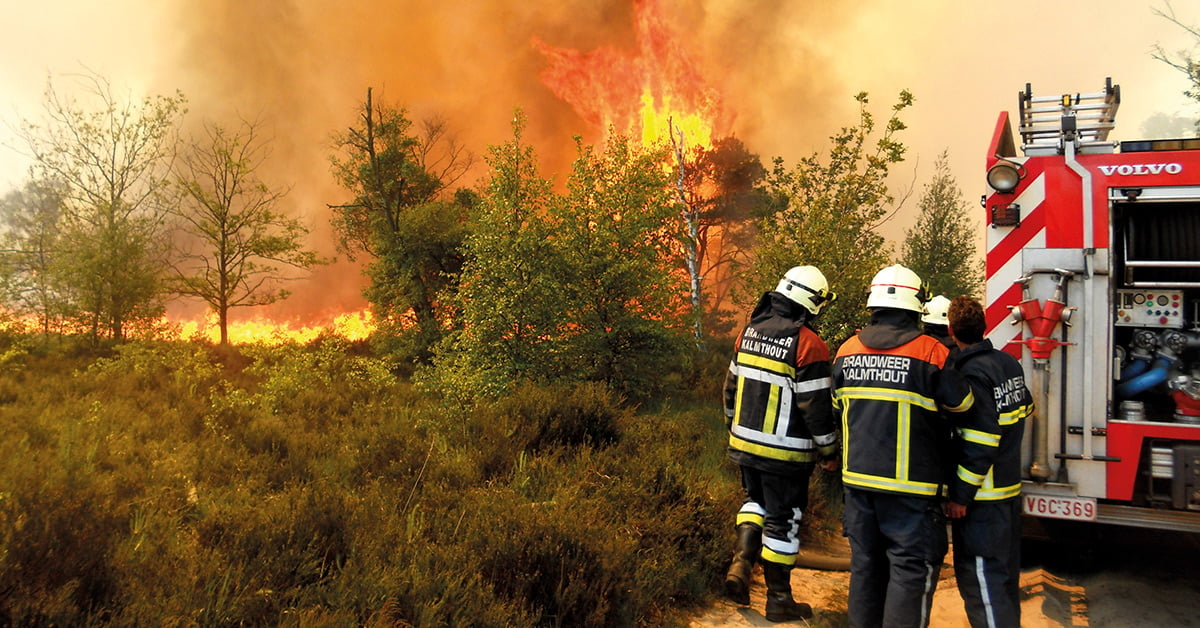
Kalmthout is located about 20 kilometers north of Antwerp, Belgium. Although being a small village of approximately 20,000 inhabitants the local firefighters are well equipped. Apart from their normal firefighting duties they also need to protect the natural reserve “Kalmthout Heat” against fire. Thermal imaging cameras are since long part of their equipment.
“Thermal imaging cameras are definitely not new to us.”, explains lieutenant Ronny van Riel, commanding officer of the Kalmthout fire fighters. “We started to use them about 10 years ago. At that point in time we acquired a FireFLIR. The unit works perfectly and has proven its worth.”
“Recently we also acquired a FLIR K50. This camera is a lot more compact than the FireFLIR which makes it a lot more practical to carry around. Firefighters clip it easily to their turnout or Self Containing Breathing Apparatus (SCBA) and carry it around hands-free until they need the device.”
“We have the FLIR K50 mounted in a charger in the truck that always arrives first at the scene. Thanks to its fast start-up time the FLIR K50 is immediately ready for action when we need it.”
Fire on the Kalmthout Heat
Heather stretching to the horizon, purple moor-grass swaying in the breeze, golden bracken fronds, windswept silver birch, chirruping meadow pipits and calling curlews: the Kalmthout Heat.
This natural reserve, which a surface of over 8,000 hectares is located in Kalmthout. During the hot and dry summer season this unique and protected area is susceptible to fires.
“In 2011 a fire started in the Heath.”, explains lieutenant van Riel. “It spread rapidly and at the end about 600 hectares were destroyed. Extinguishing the fire was a massive operation during which we were supported by numerous firefighting corpses. Hundreds of firefighters worked day and night, sometimes risking their lives, in order to minimize the damage at this unique nature reserve.”
“Also during this operation thermal imaging came into play. In areas where we succeeded to extinguish the flames we were confronted sometimes with “ground fire”. Although not visible to the human eye, the fire rages underground. It can lead to a full outbursting fire, several meters away from it's last origin. Thermal imaging cameras showed us clearly hot spots in the heath where “undergroud fire” was still raging. By further extinguishing and cooling down the area we prevented spontaneous self combustion.”
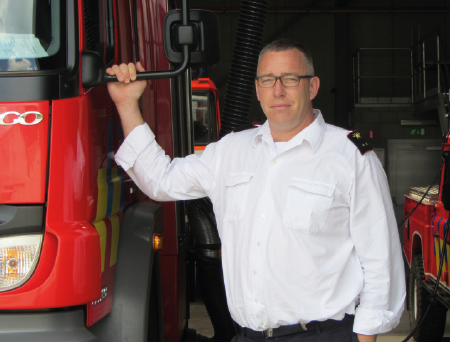
“Not only did we use our handheld thermal imaging camera for looking at hot spots. Helicopters equipped with gimbal thermal imaging cameras flew over the area and directed us to places where underground fire was raging.”
Protection against roll-overs thanks to temperature measurement
“When there is a fire we often need to enter in thick smoke. For firefighters it is sometimes hard to see their hands in front of their face. Thanks to a thermal imaging camera they can see through the smoke, see the lay-out of the room and determine if there are still people around. But thanks to the fact that a thermal imaging camera can also measure temperature, it helps to protect our firefighters against a dangerous phenomenon: a roll-over.”
The fire condition known as rollover is a dramatic display of unburned, superheated gases, that gather at the ceiling or upper levels of a fire area. It’s not the materials in the room that are burning, but the flammable gases that are given off by the materials. When these concentrated gases reach their ignition point the temperature in the room will rise rapidely.
“If we go inside a building and see that we might be confronted with a roll-over, we closely monitor the temperature of the ceiling with the thermal imaging camera while we try to cool down the smoke. If the temperature exceeds a certain value we know that we can be confronted with a flash-over. In order not to bring the lives of firefighters in danger we need to leave the room before a roll-over can take place.
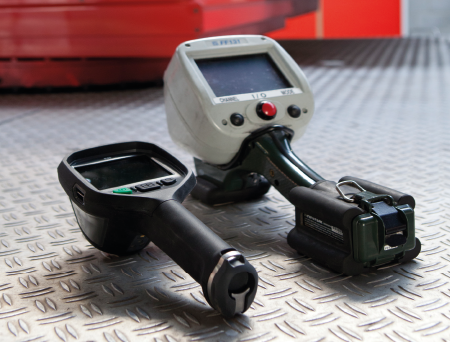
“When we are confronted with a burning building at least two firefighters enter the scene. One is carrying the fire hose and another the thermal imaging camera so that the can show the lay-out of the structure and help his colleague to direct the nozzle pattern where it needs to go.”
Chimney fires
A chimney fire often begins with incomplete combustion of fuel . Unburned volatiles are heated to their vapor state but not consumed due to a lack of adequate heat and oxygen within the appliance that is connected to the chimney. Volatile distillates escape into the chimney, where they contact cooler surfaces and condense into tar-like deposits, and soot. Successive layers accumulate until either the chimney plugs completely, or the chimney reaches a temperature and oxygen level at which the deposit will ignite.
“When we are confronted with a chimney fire we use the thermal imaging camera to determine the hottest spot in the chimney. This spots stand immediately out on the thermal image. We can monitor the progress of our extinguishing efforts with the camera.”
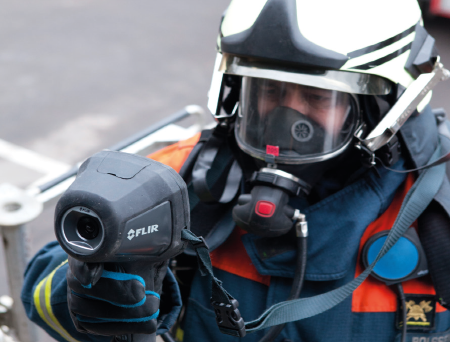
More than fire only
“Recently we used the FLIR thermal imaging camera to look for a child that got lost in the Kalmthout Heath. Since dusk was arriving we used our thermal imaging cameras during the search since we knew that the cameras would pick up the heat signature of the child. At the end the child was recovered safely without needing the thermal imaging cameras but if not, the cameras would have been a great tool during total darkness.”
“Thermal imaging cameras are a great tool for every firefighter for multiple applications. With the FLIR K50 in our primary vehicle and the FireFLIR in our secondary, we are well equipped. The cameras help to protect the lives of our firefighters and helps them to save the lives of others.”, lieutenant van Riel concludes.
